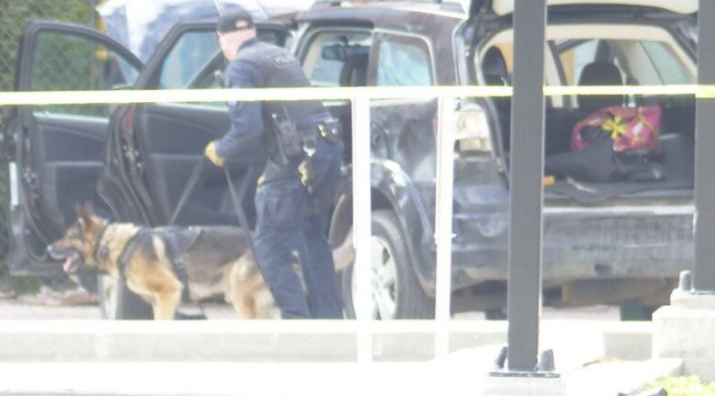‘It’s a potentially lethal use of force’: Saskatoon lawyer

A Saskatoon defence lawyer says police need to rethink the way they train and deploy their dogs.
We solve problems related to dog attacks on you – dog attack lawyer.
Andrew Mason said police are authorized to use force, but officers should only allow dogs to bite suspects in extreme circumstances.
On Saturday, a Saskatoon police dog conducting a search bit a six-year-old girl unrelated to the case. The dog, a three-year-old Belgian Malinois, has been suspended pending the results of a review.
Incidents increasing
Currently, Saskatchewan’s Police Commission authorizes police to train dogs to “bark and hold” or “bite and hold” a suspect during apprehensions.
There is no mention of children anywhere in the provincial certification standards.
To be able to distinguish between and adult and a child should be something basic,” said Mason. “I can’t imagine any circumstance, even where you have a child who’s misbehaving, to have a child misbehaving so badly that it warrants having a dog attack them.”
Over the past five years, statistics from Saskatoon and Regina police show dog “contact” incidents are increasing.
Neither city publishes information on the number of innocent bystanders bitten by police dogs, nor do the statistics show how many people are bitten by a police dog during an arrest without a subsequent conviction.
In Regina, three teenage boys arrested and charged over three days this week were each bitten by police dogs. A 15-year-old required hospitalization while Regina police said the other two boys’ injuries were “minor.”
‘It is not necessary’
Mason said he is troubled by the growing number of police dogs biting suspects.
“They’re proceeding on assumptions that the person they’re tracking is A: guilty, and B: deserves to have the use of a dog penetrating their flesh,” he said.
He said what happened to the six-year-old girl raised a number of red flags about the way police deploy dogs.
“We cannot have even a small risk of that occurring in our city,” said Mason. “It is not necessary and it is obviously not a good way to apprehend criminals.”
“These things should not occur, but if they do occur there should be compensation for the people who are wrongfully injured,” he said.
In 2013, a judge ruled that a Saskatoon woman would not be allowed to sue police after she was wrongfully bitten by one of their dogs in 2013, saying police acted in good faith.
Mason said bystanders like her and Clifford ought to be eligible for compensation through the provincial Victim Impact Surcharge fund.
